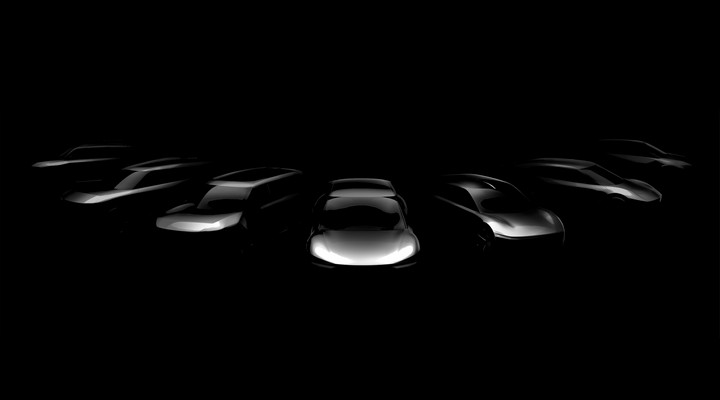Kia Motors Corporation has shared a glimpse of its global electric vehicle (EV) business strategy today, revealing an early sketch of several of the brand’s future dedicated Battery Electric Vehicles (BEVs). Details of Kia’s future EV product strategy were announced by Kia President and CEO Ho Sung Song during an event at the brand’s Hwasung plant in Korea.
Kia will establish a leadership position in the global EV market by responding to fast-growing global consumer demand for EVs. The brand will launch a diverse range of dedicated BEVs and partner with EV charging companies worldwide to achieve this.
“Kia has sold more than 100,000 BEVs worldwide since the introduction of our first mass-produced BEV in 2011, the Kia Ray EV, ” said CEO Song. “Since then, we have started to introduce a range of new BEVs for global markets and announced plans to accelerate this process in the years ahead. By refocusing our business on electrification, we are aiming for BEVs to account for 25 percent of our total worldwide sales by 2029.”
Under Kia’s ‘Plan S’ strategy, announced at the start of 2020, the brand plans to expand its BEV line-up to 11 models by 2025. Over the same period, Kia is aiming for BEVs to account for 20 percent of the brand’s total vehicle sales in advanced markets, including Korea, North America, and Europe. Seven dedicated BEVs in the sketch revealed today will be launched by 2027.
The first of these BEVs, code-named CV, will be revealed in 2021 as the brand’s first dedicated BEV, destined for many regions globally. The new model will offer the same competitive product quality and eye-catching design as Kia’s other vehicles, with high-performance driving and recharging characteristics.
Kia Motors is undergoing a company-wide transformation in order to realize ‘Plan S’. The CV model, due to launch in 2021, will encapsulate the brand’s attitude towards innovation and change, presenting a new design direction that signifies Kia’s transition to an EV-focused business strategy. Kia’s new design philosophy embraces progress, diversity, and a rich composition of contrasting elements.
Kia is innovating its vehicle planning, development, and production to actively reflect diverse customer needs from the product planning stage. Kia is planning to respond to market demands by offering diversified product types, with a range of models suitable for urban centers, long-range journeys, and performance driving. Furthermore, by adapting its new Electric-Global Modular Platform (E-GMP), Kia will be able to offer vehicles with best-in-class interior spaciousness.
Kia Motors is also seeking to innovate its sales practices for EVs. The brand is exploring the creation of subscription services to offer a diversified buying option for customers, as well as EV battery leasing and rental programs, and other ‘second-life’ battery-related businesses.
